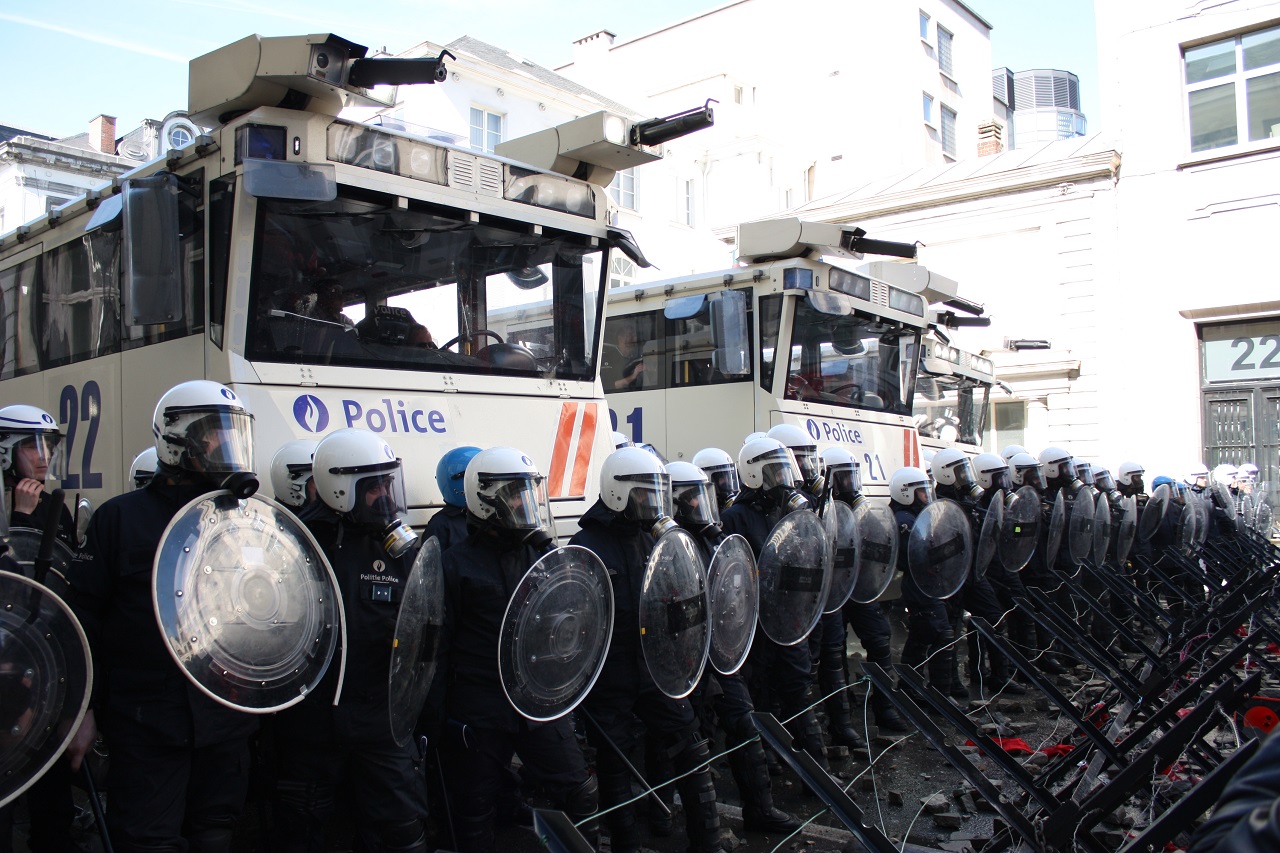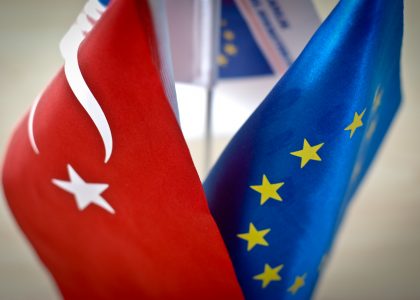Lee Jarvis urges caution amid the rush to make sense of the attacks in Belgium.
As is always the case when responding to breaking news around political violence, the details at the time of writing this are yet to be established. We know that have been explosions at Brussels airport and Maelbeek metro station, with reports of multiple casualties. Speculation has linked these to the recent arrest of Salah Abdeslam – a key figure in last year’s November attacks in Paris – and therefore to Islamic State or Daesh.

A first point to note is that the causes of any event – including violences we might term ‘terrorism’ – are multiple and complex. They include preconditions – those things that are needed for an attack to be carried out (access to munitions, the availability of a relatively ‘soft’ target); precipitant causes – specific events that precede an attack; and structural ‘root’ causes such as political, economic or cultural contexts that might include globalization, political dynamics, inequalities or injustices. If Islamic State is definitively identified as responsible for these attacks, this framework would shed light on the importance of Abdeslam’s arrest as a precipitant cause, as well as the significance of broader contexts including Western use of violence as a foreign policy tool in the Middle East and, perhaps, the dislocation or alienation of socio-economically deprived individuals in Western Europe.
A second point to note is that such an analysis should proceed with considerable caution. There are numerous examples of attacks being misattributed to – or falsely claimed by – particular organisations, and we should be wary of doing this in the current circumstances. In a radio interview I gave at the time of Anders Breivik’s 2011 attacks in Norway, for instance, I was asked more than once about al Qaeda’s likely involvement. We subsequently learned the attack was borne of an extreme right wing hostility toward immigration and Islam, and what Breivik termed ‘cultural Marxism’. The difficulty here is a product of at least two factors. First, is an understandable rush to respond to, and desire to make sense of, unfolding events as they happen in a 24 hour news media environment. Second, is the predictable lack of reliable information about a form of political violence that is – by its nature – clandestine, secretive, and hidden. Those of us outside of the security services, police and so forth simply do not have access to the type of intelligence needed to pronounce definitively on events such as these as they take place (however much some ‘terrorism experts’ would have you believe otherwise). In Marc Sageman’s provocative summary: ‘we have a system of terrorism research in which intelligence analysts know everything but understand nothing, while academics understand everything but know nothing’.
With the above in mind, we can, perhaps, and unfortunately be more certain that the response to the Brussels attack will be a concerted and far-reaching one. This is, in a sense, understandable: governments and security professionals have to be seen to be doing something in response to security threats. We should, however, bear in mind that the evidence base for assessing the likely effectiveness of particular types of counter-terrorism strategy remains thin, at best: even in the academic field of terrorism research. Indeed, one well-known analysis of over 20,000 studies of terrorism found a total of only seven that ‘contained moderately rigorous evaluations of counter-terrorism programmes’.
Drawing on analyses including by Richard English, Ronald Crelinsten as well as our own work in this area – here, therefore, are three suggestions that I made at greater length in this article after the Paris attacks and would like to reiterate in response to this morning’s events in Brussels.
First, let us entirely eschew any moralistic, militarised and Manichean discourse that will no doubt be used to frame the attacks as ‘barbaric’ or ‘evil’ by some media commentators, academics and politicians. Such framing may have populist utility for would-be or incumbent statespeople. It will add nothing, however, to our understanding of what happened (and why).
Second is to treat the attacks in Brussels as a criminal rather than military attack, and to prioritise responses grounded in criminal justice, intelligence and diplomatic frameworks rather than those reliant upon the armed forces. The strategic utility of militaristic counter-terrorism measures is – at best – highly questionable. And, the risk of ‘collateral damage’ – or civilian death and injury – should be front and centre of any risk analysis of whether such responses merit their consequences. One report published last year suggested that US efforts to kill 41 men via drone strikes had led to the deaths of 1147 people. Iraq Body Count estimates the death toll from violence in Iraq at between 155,992 and 174,439 civilians from the 2003 military interventions.
Third, is to refuse the temptation to overreaction in response to these attacks in Brussels, irrespective of the pain they will no doubt have caused to those caught up in the events. Taking time to understand and think carefully about the contexts of the attacks would be a useful start here. Similarly, downplaying rather than exaggerating the threat posed by terrorism to those of us living in Belgium, the UK and anywhere else would be far more helpful than exaggerated or securitized responses. Few states in Western Europe are strangers to unconventional violence of one form or another: there is, regrettably nothing qualitatively new in attacks of this nature. At the same time, the risk of personal injury from terrorism – again, in Western Europe – pales into insignificance vis-à-vis almost any other type of direct or structural harm one might mention. This does not, of course, in any way condone or make light of that which happened this morning. It does, however, appeal to a normalisation of response in a time of ‘states of emergency’ and ‘lock-downs’.
Lee Jarvis is a Reader in International Security at the University of East Anglia and an editor of Critical Studies on Terrorism. He is author or editor of nine books on the politics of terrorism, counter-terrorism and security. Contact him on l.jarvis@uea.ac.uk






This is a very pragmatic diagnoses the issues but also offers as all an important advice. Today many other experts are quick in their response to point fingers while they do not have facts or evidence for that matter. I am so pleased with this article as it gives us very healthy analysis.